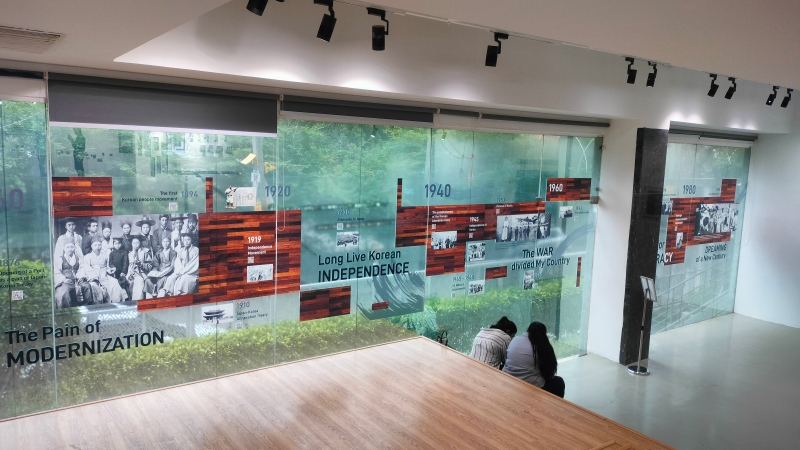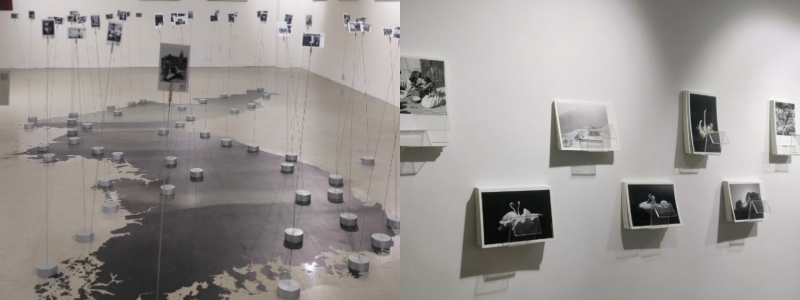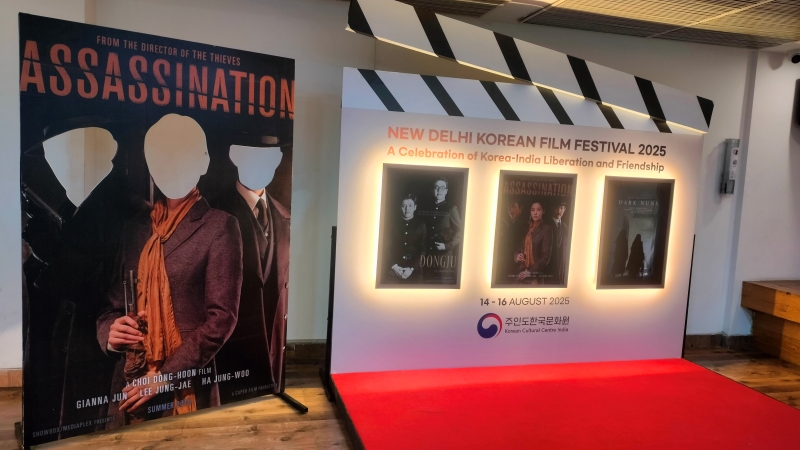- 한국어
- English
- 日本語
- 中文
- العربية
- Español
- Français
- Deutsch
- Pусский
- Tiếng Việt
- Indonesian
By Honorary Reporter Preeti Rawat from India
Photos = Preeti Rawat
Aug. 15 in Korea and India marks the day on which both countries gained independence from colonial rule. To celebrate the occasion in Korea, the Korean Cultural Center (KCC) in India on Aug. 14 opened the photo exhibition "Korea: In the Shadows of Pain, The Light of Dreams."
To run through Oct. 31, the event features photographs and interactive displays. I visited on Aug. 15.

The interactive timeline explores Korea's history from 1860 to 1988.
The exhibition traces Korea's modern history through works by three acclaimed photographers. Koo Wang-sam (1909-77) was a pioneer of contemporary photography showing post-liberation reality; Cho Kyu-sun (1938-2024) was known for his rural landscapes; and Baek Jong-ha (1963- ) gained attention for his "Dancing Egret" series, which portrays the bird's elegant movements to symbolize Korea's struggles and changes during its modernization.
Adding an interactive dimension, the exhibition displays Polaroids taken by a foreign photographer and media artist in the days following liberation on a large floor map of the Korean Peninsula. QR codes allow visitors to uncover the stories behind each snapshot to revisit pivotal events.

A floor map (left) of the Korean Peninsula shows Polaroids taken by a foreign photographer immediately after liberation. Postcards (right) feature the works of noted photographers Koo Wangsam, Cho Kyusun and Baek Jongha.
In addition to the photo exhibition, the KCC also held the fourth New Delhi Korean Film Festival from Aug. 14-16, screening three films depicting Korea's turbulent history.
The first work was "Dongju: The Portrait of a Poet" (2016) about poet Yun Dong-ju (1917-45), who resisted oppression through his poetry until his final days. This award-winning movie resonated deeply with the Indian audience, who drew parallels with the sacrifices of their country's freedom fighters.
On Aug. 15, which also marked India's 79th Independence Day, the festival screened "Assassination" (2015), a gripping action film depicting the covert operations and sacrifices of Korea's armed independence movement. The festival concluded the next day with "Dark Nuns" (2025), a supernatural drama exploring faith and religion.

Props displayed on the second day of the film festival at the KCC in India on Aug. 15 promote the award-winning movie "Assassination" (2015).
In a news release, KCC Director Hwang Il-yong said, "Despite their different historical backgrounds, Korea and India share a common experience of walking the path towards freedom. I hope this film festival and photo exhibition will serve as an opportunity to shed new light on the meaning of liberation, a journey that both countries should remember and celebrate together, through culture and art."
"The authenticity and narratives unique to Korean films will deeply resonate with young Indians, and the photo exhibition will also serve as a valuable forum for exchange, blending history and emotion."
msjeon22@korea.kr
*This article is written by a Korea.net Honorary Reporter. Our group of Honorary Reporters are from all around the world, and they share with Korea.net their love and passion for all things Korean.